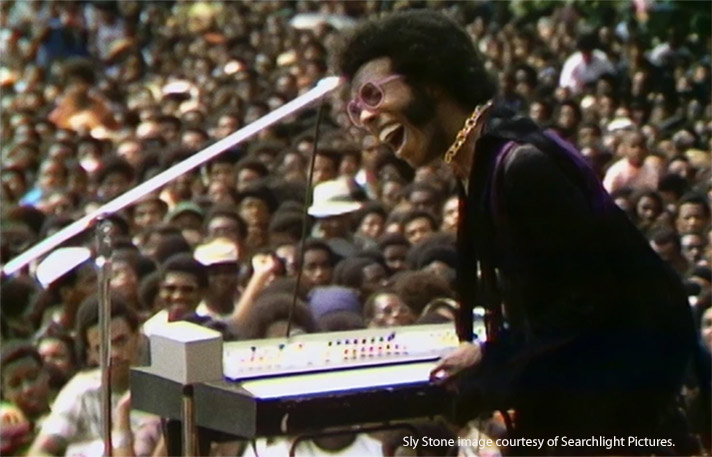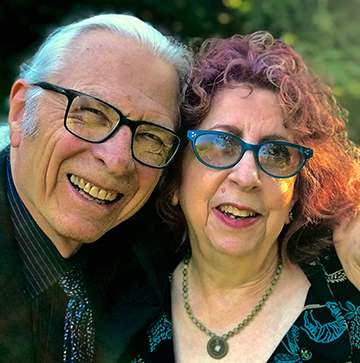The Unfettered Critic – August 2021
We watched a movie at a theater for the first time in eighteen months.
Really.
And yes, it felt like a big deal, because post-vaccinations, with the pandammit looking a little less fearsome, we felt an itch to go where we didn’t have to pop our own corn. Hollywood, finally, was releasing films they’d cautiously been hoarding. But which would be right for our first cinematic outing?
We decided on Summer of Soul (…Or, When the Revolution Could Not Be Televised), a lovingly-crafted documentary about The Harlem Cultural Festival, a series of long-forgotten concerts held in Mount Morris (now Marcus Garvey) Park during the summer of 1969.
Wait: 1969?
Why, we wondered, were they long-forgotten? They certainly carried enough star power, with the likes of Stevie Wonder, B.B. King, Gladys Knight and the Pips, the Fifth Dimension, Sly and the Family Stone, Mahalia Jackson, Mavis Staples, and many more. How could these concerts have left no footprint in history? Particularly since they occurred the same summer that, a mere hundred miles to the north, a little thing called Woodstock would soon take place. Everybody knows about Woodstock! Jimi Hendrix! Crosby, Stills, and Nash! The Who! Santana! Joan Baez! Jefferson Airplane! And Sly and the Family Stone. Woodstock gave rise to a major motion picture. But of this so-called “Black Woodstock,” there was no movie, nor memory.
Why? What happened?
Too few attendees? Nope. 300,000 excited fans attended the Harlem Cultural Festival. Woodstock pulled in only a third more.
Unfamiliar songs? Nope. “Aquarius/Let the Sunshine In,” “Oh Happy Day,” “Heard it Through the Grapevine,” “Grazing in the Grass,” and even “Everyday People,” which Sly and the Family Stone shortly would reprise at Woodstock. That’s plenty of Top 40 hits, all performed by the original artists, with a spectacular assemblage of backup bands.
The answer is sadly obvious, and socially resonant. In 1969, television director/producer Hal Tuchin (whose resume included specials about Sammy Davis Jr., Bobby Goldsboro, and Wayne Newton) daringly filmed the concerts on spec. But Tuchin couldn’t convince anyone—and he approached every major network—to finance a film about Black artists performing in Black Harlem. And so, with the exception of those 300,000 attendees, the Festival faded from memory.
Thankfully, Tuchin didn’t destroy his bounty in a fit of pique. He stored it in his basement, knowing that someday, someone would recognize its value.
Eventually, two astute producers—David Dinerstein and Robert Fyvolent—approached Tuchin and acquired the rights. It had taken only forty-five-plus years!
But who could create a spectacular film? Dinerstein and Fyvolent chose Ahmir “Questlove” Thompson, co-founder of the Roots hip-hop group and leader of the current Tonight Show Band. Questlove almost dismissed the producers when they told him what they had. He doubted that an event like the Harlem Festival could have happened without him ever hearing about it. But once they showed him footage, he was in.
The result is in theaters now, and streaming simultaneously on Hulu. It’s a joyous celebration of major talent making major music. (Just the duet between Mahalia Jackson and Mavis Staples on “Take My Hand, Precious Lord” is worth the price of admission.)
A sidenote: when a New York Times reporter covered the concerts, she referred to the event and the majority of the performers as “Black” (as opposed to the standard term, “Negro”). The editor agreed, and the term quickly became widely adopted, not only by the Times, but also as common usage.
Several weeks ago, Summer of Soul won the Grand Jury Prize and the Audience Award at the Sundance Film Festival, forgotten no more.

 Paula and Terry identify as writers, with an ever-increasing number of published works to support the supposition. They live a primarily pastoral life in the enchanted town of Jacksonville.
Paula and Terry identify as writers, with an ever-increasing number of published works to support the supposition. They live a primarily pastoral life in the enchanted town of Jacksonville.